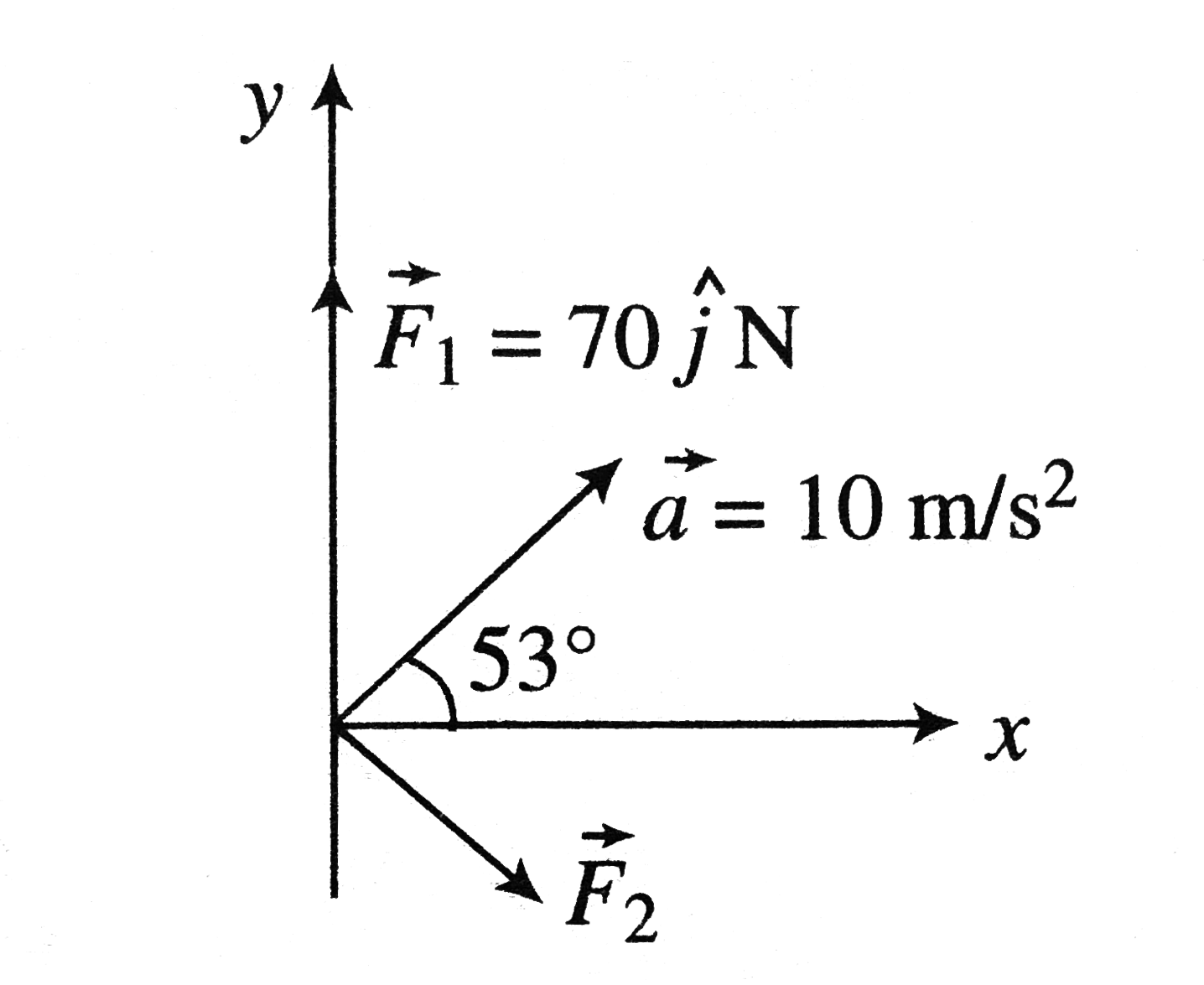When force act on a particle , the particle remains in equilibrium . If is now removed then acceleration of the particle is
The correct Answer is:B
Step by step video, text & image solution for When force vec(F_(1)), vec(F_(2)),vec(F_(3))"…..."vec(F_(n)) act on a particle , the particle remains in equilibrium . If vec( F_(1)) is now removed then acceleration of the particle is by Physics experts to help you in doubts & scoring excellent marks in Class 12 exams.
Topper's Solved these Questions
- BOOK - MOTIONCHAPTER - NLM & FRICTIONEXERCISE - EXERCISE-266videos
NLM & FRICTION
- BOOK - MOTIONCHAPTER - NLM & FRICTIONEXERCISE - EXERCISE-2(Level-II)25videos
NLM & FRICTION
- BOOK - MOTIONCHAPTER - NLM & FRICTIONEXERCISE - SOLVED EXAMPLE16videos
NLM & FRICTION
- BOOK - MOTIONCHAPTER - NEWTON'S LAWS OF MOTION & FRICTION EXERCISE - Exercise - 3 Section-B12videos
NEWTON'S LAWS OF MOTION & FRICTION
- BOOK - MOTIONCHAPTER - ONE DIMENSION MOTIONEXERCISE - Exercise - 3 |Section - B Previous Year Problems | JEE MAIN12videos
ONE DIMENSION MOTION
Similar Questions
Three forces (→F1,→F2,→F3) are acting an a particle moving vertically up with constant speed. Two force →F1=−10ˆjN, and →F1=−6ˆi=8ˆj , N are acting an particle on acting on particle respectively find →F3.
View SolutionA particle of m=5kg is momentarily at rest at x=att=. It is acted upon by two forces →F1 and →F2. Vec(F)1=70ˆj N. The direction and manitude of →F2 are unknown. The particle experiences a constant acceleration, →a,in the direction as shown in (figure) Neglect gravity.

a.Find the missing force →F2.
b. What is the velocity vector of the particle at t=10s?
c. What third force, →F3 is required to make the acceleration of the particle zero? Either give magnitude and direction of →F3 or its components.View Solution
Knowledge Check
- Question 1 - Select One
When force →F1,→F2,→F3 are acting on a particle of mass m, the particle remains in equilibrium. If the force →F1 is now removed then the acceleration of the particle is :
A→F1/mB→F1/mC→F2−→F3/mD→F2/m - Question 2 - Select One
When forces F1 , F2 , F3 are acting on a particle of mass m such that F2 and F3 are mutually prependicular, then the particle remains stationary. If the force F1 is now rejmoved then the acceleration of the particle is
AF1/mBF2F3/mF1C(F2−F3)/mDF2/m - Question 3 - Select One
When forces F1, F2, F3, are acting on a particle of mass m such that F2 and F3 are mutually perpendicular, then the particle remains stationary. If the force F1 is now removed then the acceleration of the particle is
A(a) F/mB(b) F2F3/mF1C(c) (F2−F3)/mD(d) F2/m
Three forces ¯¯¯¯F1,¯¯¯¯F2and¯¯¯¯F3 are simultaneously acting on a particle of mass 'm' and keep it in equilibrium. If ¯¯¯¯F1 force is reversed in direction only, the acceleration of the particle will be.
View SolutionFive forces →F1,→F2,→F3,→F4 , and →F5 , are acting on a particle of mass 2.0kg so that is moving with 4m/s2 in east direction. If →F1 force is removed, then the acceleration becomes 7m/s2 in north, then the acceleration of the block if only →F1 is action will be:
View SolutionThree forces are acting on a particle of mass m initially in equilibrium if the first two forces (→R1and→R2) are perpendicular to each other and suddenly the third force (→R3) is removed, then the magnitude of acceleration of the particle is:
View SolutionA body placed in free space, is simultaneously acted upon by three forces −→F1,−→F2 and −→F3. The body is in equilibrium and the forces −→F1 and −→F2 are known ot be 36 N due north and 27 N due east respectively. Which of the following best describes the force −→F3?
View SolutionTwo forces −→F1and−→F2 are acting at right angles to each other , find their resultant ?
View Solution

